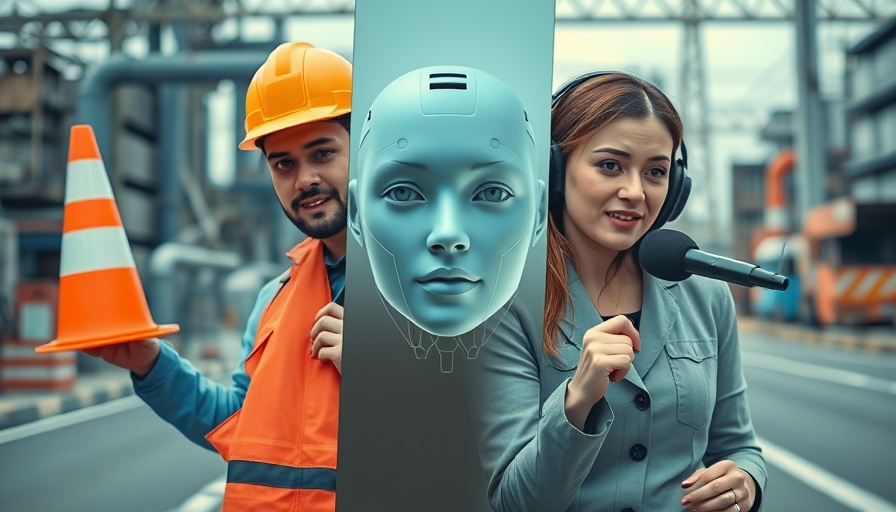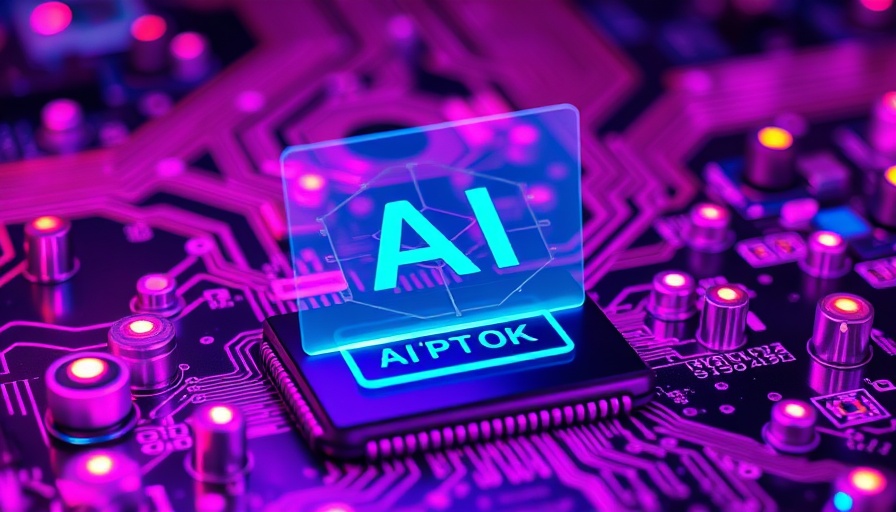
The AI Revolution: How Technology is Reshaping Job Security
The job market is undergoing a seismic shift, with artificial intelligence (AI) technology presenting both opportunities and threats. A recent report from Microsoft reveals the 40 jobs most susceptible to automation, a revelation that has left many workers concerned about AI job cuts. As technology advances at breakneck speed, Australian companies are reporting layoffs linked to new advancements. Understanding which jobs stand on the edge of the technological cliff can provide insight for both workers and employers navigating this rapid transformation.
The Jobs at Risk of AI Job Loss
According to Microsoft's findings, certain roles are more vulnerable than others to being automated. Positions that typically involve repetitive tasks or basic data entry are at the highest risk of becoming obsolete. For example, administrative roles, such as receptionists and data entry clerks, are predicted to face significant disruption as AI tools continue to evolve. This serves as a reminder of the changing landscape of employment, as corporations shift towards leaner, AI-focused operations.
The Human Cost of Layoffs: Stories from the Community
While the headlines focus on numbers, each layoff represents a person, a family, and a community impacted by technology's advancements. Take Sarah, a dedicated data entry worker in Sydney, who lost her job due to AI integrations in her workplace. Sarah’s story is not unique; thousands across the nation are facing similar fates. The emotional toll is profound, as these individuals navigate uncertainty and search for new opportunities in a shifting job market.
Why Understanding AI Job Cuts is Crucial for Workers
For both employees and job seekers, awareness of which roles are becoming automated can lead to proactive career planning. Workers can pivot toward areas that require a human touch, such as roles in healthcare or creative industries, which AI cannot easily replicate. Additionally, acquiring new skills through training programs can empower individuals to remain relevant in the evolving workforce. By staying informed and adaptable, workers can mitigate the risk of AI job loss.
Future Opportunities Amid Technological Change
Interestingly, while numerous jobs face automation threats, new positions in AI development, system maintenance, and cybersecurity are emerging. This paradox presents an opportunity for individuals willing to shift their focus toward these growing sectors. Companies actively seeking talent in these areas highlight the importance of innovation and adaptation in our current economy.
Supporting Community Resilience with Local Initiatives
Communities need to come together to support those affected by layoffs. Local initiatives, such as job fairs and retraining workshops, can pave the way for displaced workers to find their footing again. Moreover, collaboration between educational institutions and businesses can foster a talent pipeline that benefits both the workforce and the economy, ultimately creating a more resilient community.
Moving Forward: Advocacy and Education in the Face of Change
As the narrative around AI and job security unfolds, advocating for educational initiatives becomes imperative. Encouraging discussions about technology's role in the workplace can help communities prepare for upcoming changes. Strong partnerships between businesses, workers, and educational organizations can help foster a spirit of resilience, ensuring that every worker has the tools they need to succeed amid challenges.
The discussion surrounding AI job cuts and layoffs does not have to be merely about loss; it can also be about the opportunity for adaptation and growth. By understanding the changing workforce landscape and working together, we can turn potential job threats into building blocks for a vibrant economic future.
 Add Row
Add Row  Add
Add 




Write A Comment